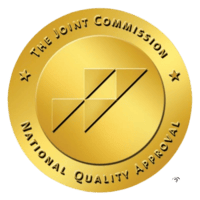Peer support groups are important for people recovering from addiction. They provide a space where individuals can connect over similar experiences and challenges, reducing feelings of loneliness and encouraging personal responsibility, emotional strength, and practical coping skills. Members enjoy a supportive environment that fosters empathy and understanding, allowing them to celebrate achievements together. However, the benefits of these groups go beyond immediate help. It raises a question: what key elements help ensure long-term recovery through peer connections?
Building a Supportive Community
Building a supportive community is vital for individuals traversing the complexities of addiction recovery. Emotional support is indispensable for nurturing trust among participants. Group dynamics play a pivotal role in shaping these relationships as individuals learn to navigate their challenges together. Through shared responsibilities, members cultivate a sense of ownership and commitment to one another, reinforcing their collective resilience. This synergy not only improves individual recovery efforts but also strengthens the community.
Supportive relationships within this framework encourage open communication and mutual respect, creating a safe space for vulnerability and growth. As participants share their experiences, they validate each other’s struggles and triumphs, laying the groundwork for a sustainable recovery journey. Building a supportive community enriches the recovery process, empowering individuals to embrace change and promote lasting connections that extend beyond their addiction.
Reducing Feelings of Isolation
Isolation is prevalent for many individuals grappling with addiction, often exacerbating feelings of shame and despair. Peer support groups counteract isolation by providing a safe space where participants can share experiences without judgment, finding emotional validation. Acknowledging struggles are not unique can significantly reduce the loneliness that accompanies addiction. Regular interactions within these groups build trust and camaraderie, allowing individuals to connect with those who truly understand their journey.
The shared experiences in peer support groups cultivate a sense of belonging, which is crucial for nurturing resilience during challenging times. As individuals forge meaningful relationships, they are more likely to engage in recovery, knowing they have a support network. Reducing feelings of isolation through peer support not only improves emotional well-being but also strengthens the foundation for sustained recovery, underscoring the vital role of social connections in overcoming addiction.
Sharing Personal Experiences
Sharing personal experiences within peer support groups plays a pivotal role in recovery. Personal storytelling nurtures an environment where individuals can express themselves emotionally, allowing them to articulate their struggles and triumphs. This vulnerability practice builds trust and improves the sense of community among members. Through shared recovery narratives, participants validate each other’s experiences, reinforcing that they are not alone in their journeys.
The benefits of sharing personal experiences include resilience sharing: highlighting how individuals have overcome challenges encourages hope and determination. Journey reflections allow members to gain insights by listening to others. Insight exchange promotes deeper understanding and new coping strategies. Transformative dialogues can lead to profound personal growth. Engaging in discussions about progress encourages continued development and motivation. Ultimately, sharing experiences cultivates a supportive atmosphere crucial for sustained recovery.
Encouraging Accountability
Accountability is a cornerstone of peer support groups’ structure, nurturing an environment where individuals are motivated to take responsibility for their recovery journeys. Within this supportive framework, participants engage in goal setting, allowing them to articulate aspirations and map actionable steps. Progress tracking enables members to monitor their advancements. Regular check-ins and group discussions allow individuals to share and reflect, cultivating commitments and strengthening bonds as they witness each other’s struggles and triumphs.
The encouragement to hold members accountable keeps them focused on their goals. This mutual support is a motivational force, reinforcing that recovery is a shared journey. Such transparency fosters commitment, strengthening the group’s bonds. The collective accountability and goal-oriented approach of peer support groups motivate individuals, highlighting the shared journey of recovery as they hold one another accountable constructively and encouragingly.
Fostering Empathy and Understanding
Empathy and understanding are crucial components in peer support groups for addiction recovery. These elements promote an environment conducive to healing, where individuals can engage in empathy exercises that improve emotional listening and communication. By sharing experiences, participants practice vulnerability, enabling profound connections. Understanding perspectives broadens recovery outlooks, facilitating emotional listening that validates feelings. Compassionate communication promotes honest conversations in a safe space.
Vulnerability sharing encourages trust building, which is crucial for a supportive environment. Active engagement motivates participants to contribute, improving group cohesion. The power of shared narratives in peer support groups cultivates belonging and collective resilience. Empathy and understanding become foundational pillars, ultimately enriching the recovery journey as individuals learn to navigate their challenges together.
Accessing Resources and Information
Accessing resources and information is fundamental for individuals in peer support groups. Building on empathy, effective resource sharing ensures participants have tools needed for success. Peer support opens avenues for information, granting access to guidance and resources otherwise unnoticed. Educational workshops serve as key components, offering structured learning about addiction, coping mechanisms, and recovery strategies, enhancing the recovery journey.
Online platforms enable members to connect, sharing insights beyond geographical limits. Community outreach initiatives strengthen connections, facilitating access to local resources and supporting recovery efforts. Referral networks guide individuals toward appropriate services, including mental health care and crisis intervention programs. This comprehensive approach empowers participants and promotes a sense of community, where collective experiences contribute to a richer understanding of recovery.
Developing Coping Strategies
Cultivating effective coping strategies is vital for individuals in addiction recovery. Peer support groups facilitate this development by providing a safe environment for sharing experiences. Individuals identify techniques tailored to their needs through coping mechanism exploration. Key strategies include stress management to mitigate anxiety, emotional regulation for self-awareness, mindfulness for awareness, trigger identification to navigate relapse, and cognitive reframing to shift perspectives.
Additionally, self-care routines and resilience-building activities are fundamental components. Participants develop relapse prevention plans grounded in problem-solving, proactively addressing challenges. Through shared experiences, they gain insights into coping strategies, nurturing a sense of belonging and accountability. The collaborative nature of peer support groups amplifies the ability to maintain sobriety and navigate the recovery journey confidently.
Enhancing Communication Skills
Effective communication is the cornerstone of interactions in peer support groups, improving recovery for individuals battling addiction. Active listening fosters an environment where members feel heard and validated. This practice promotes emotional intelligence, enabling assertive expression while respecting viewpoints. Nonverbal communication plays a crucial role in conveying empathy and understanding. Participants build trust through awareness of body language and expressions, reinforcing supportive dialogue.
Using conversation starters facilitates open discussions, leading to deeper connections among group members. Conflict resolution is manageable when individuals practice effective feedback exchanges, allowing for clarity and improvement. This structured approach diffuses tensions and encourages collaboration. By navigating complex conversations, members develop skills extending beyond the group, positively impacting relationships. Improving communication skills within peer support groups equips individuals with tools for sustainable recovery and long-term success.
Celebrating Milestones Together
Milestones in addiction recovery are significant as they promote a sense of community among participants within peer support groups. By acknowledging each other’s accomplishments, individuals express gratitude that improves emotional resilience and motivation to continue their journey. Celebration events serve as supportive rituals reinforcing collective achievements and providing opportunities for group reflections. These gatherings inspire others struggling by sharing their stories.
Key aspects of celebrating milestones include milestone recognition and gratitude expression for group support. Organizing celebration events allows collective acknowledgment, while group reflections encourage dialogue about personal journeys. Shared joy creates bonds that strengthen the group dynamic, highlighting the importance of mutual support. Through these practices, peer support groups commemorate personal achievements and create an environment conducive to sustained recovery.
Promoting Long-term Recovery
Promoting long-term recovery in addiction is significantly improved through peer support groups. By sharing experiences and insights, participants cultivate a deeper understanding of their journeys. Accountability and motivation within these communities provide crucial reinforcement. Moreover, building lasting connections creates a supportive network that encourages sustained recovery and personal growth. Frequent participation in peer support groups can significantly improve the recovery journey by promoting a sense of community and shared understanding among individuals facing similar challenges.
These groups cultivate an environment where emotional validation and mutual encouragement thrive, enabling members to share unique healing narratives. Through transformative dialogues, participants gain insights into their experiences and promote shared growth. Key benefits of shared experiences and insights include reciprocal learning, where members enrich each other’s knowledge, trust building through open discussions, and exposure to diverse perspectives enhancing understanding and broadening coping strategies.
Ultimately, peer support groups serve as an essential resource in the journey of addiction recovery. By nurturing a communal environment, these groups effectively reduce isolation and promote accountability among members. Sharing personal experiences improves empathy and understanding, and developing coping strategies equips individuals with crucial tools for managing challenges. Celebrating milestones collectively reinforces a sense of belonging, ultimately contributing to sustained recovery and personal growth within the community.
At BlueCrest Detox, we’re dedicated to elevating you from the struggles of substance use to the peaks of recovery and resilience. Our expert team offers personalized, evidence-based treatment services tailored to support your unique journey toward healing. Reach out to us for the compassionate care you deserve on your path to wellness. Follow us on Facebook for ongoing support, insights, and inspiration on your recovery journey.

Frequently Asked Questions
How Do I Find a Peer Support Group Near Me?
To find a peer support group near you, explore local resources such as community centers, addiction service organizations, or online directories. Community connections facilitate access to supportive environments and improve your recovery journey.
Can I Join a Support Group Online?
Yes, you can join a support group online. Many organizations offer virtual meetings, nurturing an online community that provides valuable connections and resources. Participants can engage and share experiences from the comfort of their homes.
Are Peer Support Groups Confidential?
Peer support groups typically prioritize confidentiality policies to cultivate trust-building among members. This assurance encourages open dialogue, allowing individuals to share experiences without fear of judgment or exposure, ultimately enhancing the support network’s effectiveness and cohesion.
What Happens if I Relapse While in a Group?
If a relapse occurs while participating in a group, it serves as an opportunity for relapse management. Engaging in open dialogue allows members to share recovery strategies, nurturing resilience and reinforcing commitment to recovery.
Is There a Cost to Join a Peer Support Group?
Joining a peer support group can involve varying cost implications depending on membership options. Some groups operate on a donation basis, whereas others may require a nominal fee, ensuring accessibility for individuals seeking support.




